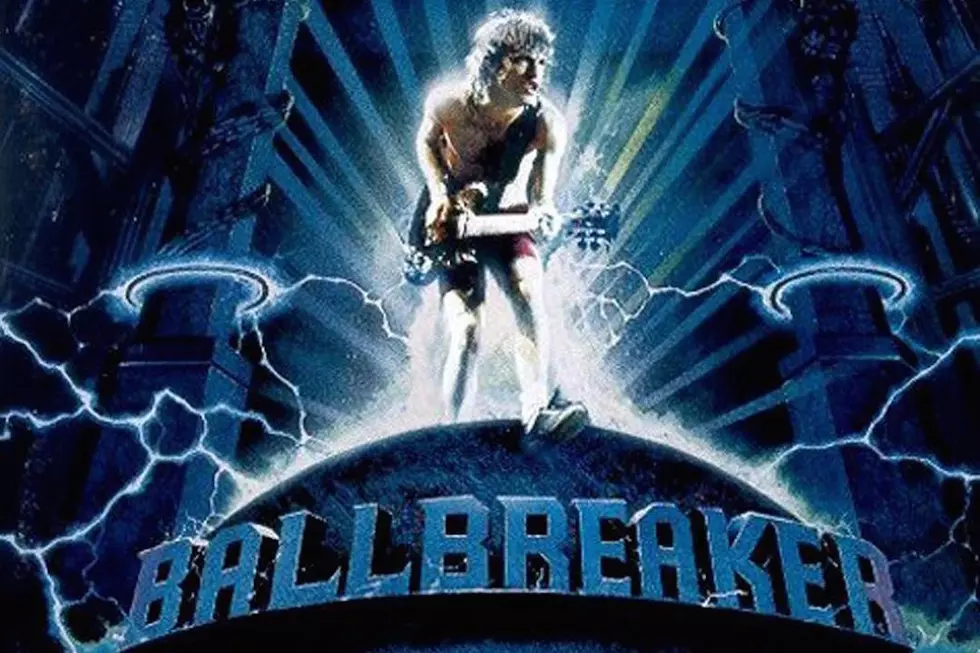
How AC/DC Found Themselves Again on ‘Ballbreaker’
A 13th album turned out to be lucky for AC/DC. Ballbreaker, released on Sept. 26, 1995, continued their return to form after 1990's The Razor's Edge.
Part of the reason for its success was the return to the fold of drummer Phil Rudd, who had left an impossible void to fill during his decade-long absence. Plus, there was the news of the recruitment of super-producer, Rick Rubin – master of the back-to-basics career resurrection – following his successful audition on 1993’s Last Action Hero soundtrack hit, "Big Gun."
The Young brothers’ songwriting confidence was clearly restored by their recent chart revival, and Rudd’s inimitable prowess made AC/DC sound like themselves once again. All that was left to complete things was Rubin’s almost religious commitment to unearthing the band's authentic ‘70s sound. He even hunted down rare, surviving Marshall valve amplifiers – not digital.
In keeping, Ballbreaker had all the makings of an AC/DC purist’s dream-come-true, plus a little something for almost everyone else.
Contagious lead-off single "Hard as a Rock," the melodically groovy "Love Bomb," and frantic album-closing title track delivered that familiar brand of cheeky hard-rock fun, capable of thoroughly satisfying radio programmers. Oh-so-naughty come-ons such as "Cover You in Oil," "The Honey Roll" and "Caught With Your Pants Down" sparked involuntary chuckles from every real-life Beavis and Butthead.
Watch AC/DC's 'Hard as a Rock' Video
Surprising deviations from stereotypical AC/DC song subjects (sex and drink and rock 'n' roll) were to be found in "The Furor" and their rousing second single, "Hail Caesar." But for dyed-in-the-wool AC/DC fanatics, there was no sweeter sonic cocktail than the finely wrought, down-and-dirty, blue-collar spirit fueling comparatively understated ‘70s throwbacks like "Boogie Man," "Burnin’ Alive" and "Whiskey on the Rocks" – all of which could have featured on 1978’s Powerage, in some parallel dimension of space and time.
Of course, this songwriting depth and diversity didn’t come easy. After insisting that AC/DC keep on honing each song to the point of impatience during pre-production, Rubin encouraged the band to rehearse them through and through. He then had AC/DC record together as a unit in the studio, allowing for only minimal overdubs after the fact.
This process yielded a wealth of strong material that made Ballbreaker arguably their deepest album of the Brian Johnson era, apart from Back in Black. But it also left the Young brothers deeply disenchanted with Rubin’s demanding, deliberate recording practices.
Five years later, they would choose an easier way forward by calling on older brother George and his partner Harry Vanda – producers of AC/DC’s landmark early catalog – to handle 2000's Stiff Upper Lip.
In the meantime, however, Ballbreaker showed us that with the proper tools in place – a persistent producer, metronome drummer, and a strong work ethic – AC/DC are capable of turning back the clock and reconnecting with the essence of their greatness, even if only for a little while.
The Hilariously Bad First Concerts of Rock's Biggest Bands
The Only Time AC/DC Was Late for a Show
More From Ultimate Classic Rock









